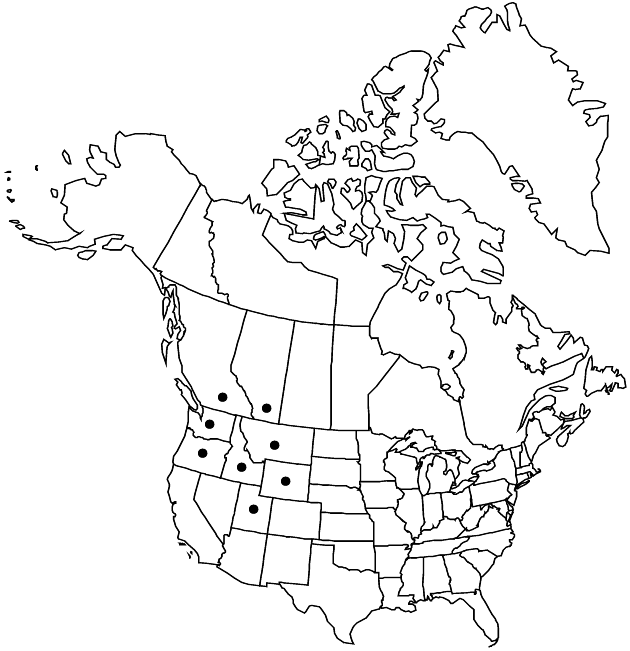Arnica gracilis
Bull. Torrey Bot. Club 24: 297. 1897.
Plants 10–30 cm. Stems (often 5–10 in dense clumps) branched distally. Leaves 2–3 pairs, mostly cauline (basal leaves often persistent on sterile rosettes, similar to cauline leaves); petiolate (petioles narrowly to broadly winged, distal pair of leaves often reduced, connate-perfoliate); blades ovate to ovate-lanceolate, 2–6 × 1–3 cm, margins irregularly serrate to subentire, apices acute, faces: abaxial glandular, adaxial stipitate-glandular. Heads (1–)5–15. Involucres turbinate-campanulate. Phyllaries 10–16, ovate-lanceolate. Ray florets 5–12; corollas yellow. Disc florets: corollas yellow; anthers yellow. Cypselae black, 4.5–7 mm, hairy (hairs duplex) and stipitate-glandular; pappi white, bristles barbellate. 2n = 57, 76.
Phenology: Flowering Jul–Aug.
Habitat: Dry, exposed, rocky, alpine slopes, sometimes subalpine meadows
Elevation: 1200–2500 m
Distribution

Alta., B.C., Idaho, Mont., Oreg., Utah, Wash., Wyo.
Discussion
Selected References
None.